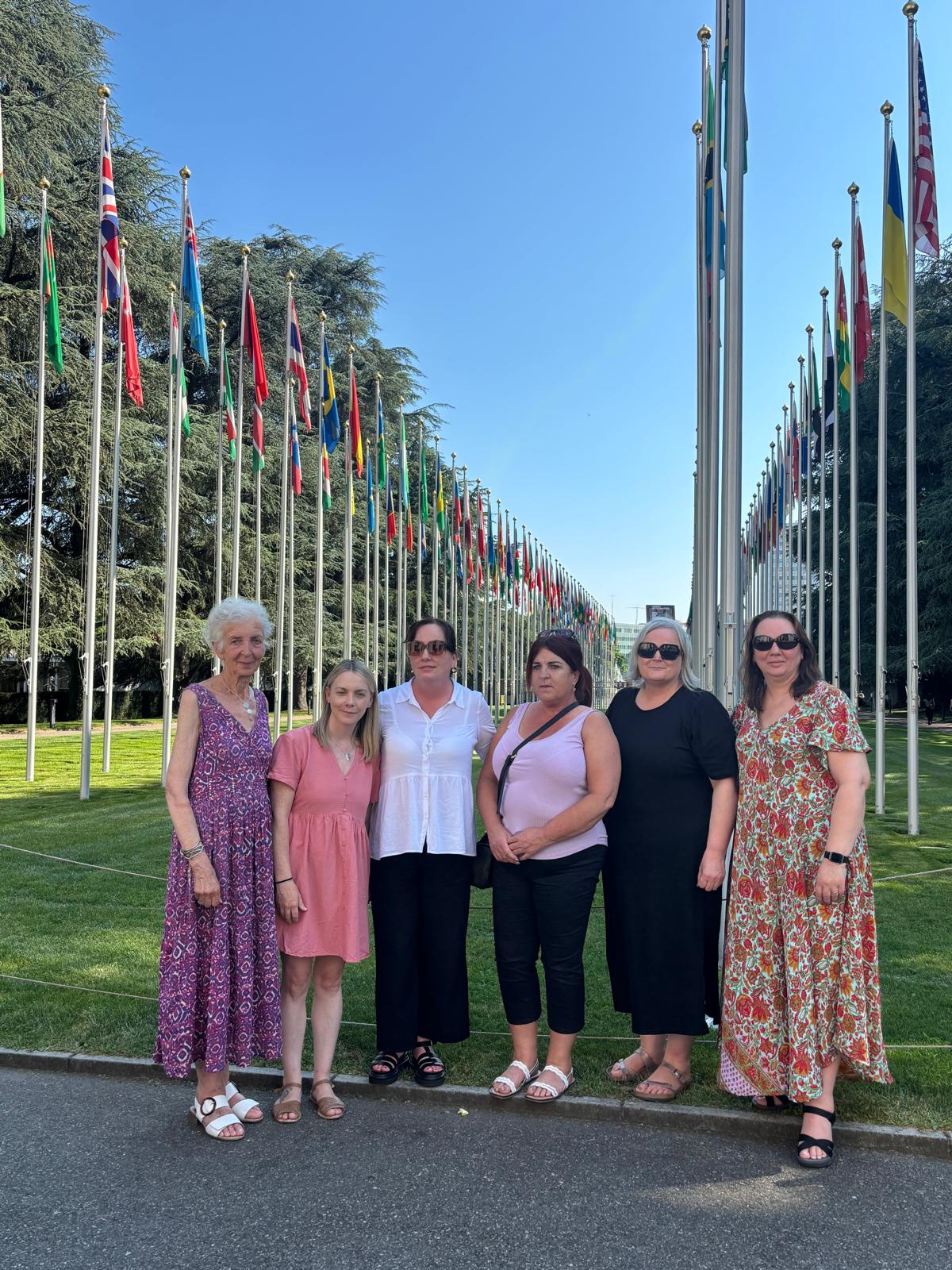Today, six representatives from the Traveller and Roma coalition are participating at the Irish State examination of progress under UN Convention on the Elimination of Discrimination Against Women (CEDAW). A large Government Delegation led by Minister of State for Migration, Colm Brophy TD and Assistant Secretary, Equality, Rights and Participation Division are present.
In advance of today’s session, the Coalition met with Members of the Committee and raised issues outlined in our submission on Traveller and Roma women’s rights, including implementation of agreed policy, health inequalities, mental health, racism, discrimination, homelessness/accommodation, education, including early years, political representation and participation, poverty and impact of Habitual Residence Condition, the rise of the Far Right, and the rise of domestic, sexual and gender-based violence.
We were pleased that Traveller and Roma issues were well covered during this morning’s session and a number of questions were raised by the Committee.
Speaking today, Maria Joyce, NTWF, welcomed the concerns expressed by the Committee’s rapporteur on the persistent structural and systemic racism experienced by Traveller, Roma and other minority ethnic women and said that these differentials need to be urgently addressed, with particular emphasis on bridging the gap between policies and the reality on the ground.
We welcome, said Lynsey Kavanagh, Pavee Point, positive comments by Minister Colm Brophy TD in relation to the vital role of Traveller Primary Health Care Projects (PHCTPs) in addressing Traveller women’s health inequalities, referring to the higher uptake in screening and services. “The majority of PHCTP workers are Traveller women, experiencing health inequalities and earning minimum wage. We are calling for pay parity and career progression which are vital to sustain these crucial projects into the future. This includes sufficient resourcing and investment as part of the National Traveller Health Action Plan.”
Roma women in Ireland are disproportionately affected by the Habitual Residence Condition which affects access to social supports, including child benefit. This is worrying as we know many Roma in Ireland live in poor conditions and poverty. We await questions from the Committee regarding this important issue.
Following today’s session, the CEDAW Committee will publish its concluding observations.
Further information:

